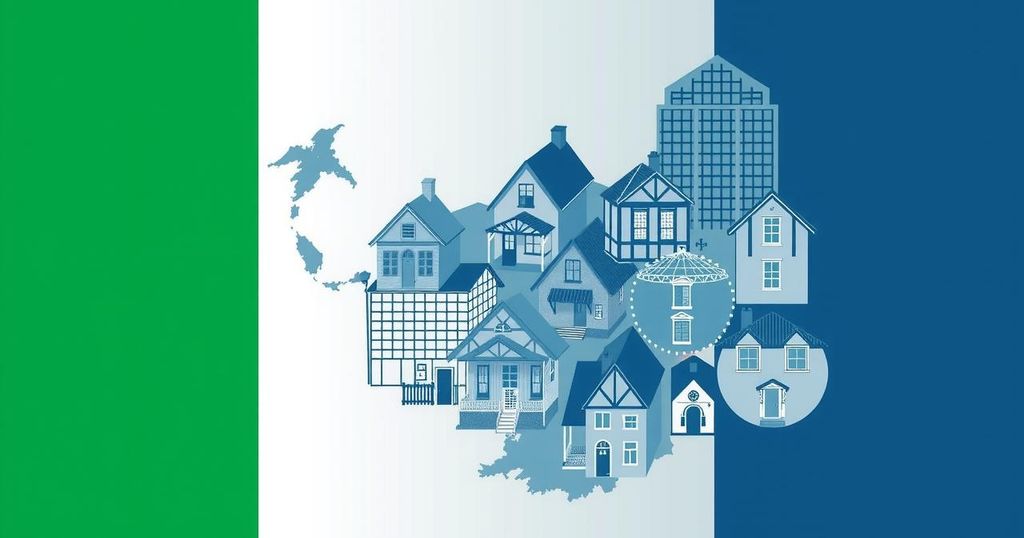Ireland is amidst a turbulent election campaign as voter discontent over housing and immigration grows. Established parties face challenges from independent candidates and Sinn Fein, amidst a backdrop of rising living costs and a significant housing crisis. An uncertain electoral outcome looms as the electorate demands change.
As Ireland approaches its general elections set for November 29, 2024, the campaign is heated by significant public concern regarding housing and immigration issues. High living costs and a recognized housing deficit have left many voters feeling beleaguered, prompting a potential shift away from traditional parties such as Fine Gael and Fianna Fail, who have historically dominated Irish politics. Instead, a notable preference is emerging for independent candidates, including controversial figures like Gerry “the Monk” Hutch, as well as leftist parties like Sinn Fein, which resonate with a discontented electorate.
The electoral landscape is notably fractured, with opinion polls indicating roughly equal support for various parties, reflecting a sense of urgency among voters seeking alternatives to the established political order. The current housing crisis plays a central role in the discourse, with rising property prices and rents pushing both young professionals and older demographics into precarious living situations.
Immigration remains a contentious issue, highlighted by a significant influx of individuals from Ukraine and varying regions, stirring tensions over adequate housing solutions for new arrivals. The recent stabbing incident in Dublin further exacerbated fears among the populace regarding public safety and community stability amid these changes.
Political leaders are responding with promises of increased housing initiatives and more structured immigration policies. While the current government enjoys some financial advantages from external sources, including substantial back taxes from multinational corporations, concerns loom over their ability to appease the restless electorate. The most probable outcome appears to be a continuation of the coalition between Fine Gael and Fianna Fail, despite Sinn Fein’s attempts to broaden its appeal and reinvigorate its base with promises of transformative governance.
The backdrop of the article is the current political climate in Ireland, marked by an imminent election amidst growing public dissatisfaction with traditional political parties. Issues surrounding housing affordability and rising immigration have taken center stage, creating a climate ripe for potential changes in voter allegiance. This election is characterized by an unprecedented fragmentation of support across multiple parties, including independents and smaller parties, creating uncertainty regarding the outcome and future governance.
In summary, Ireland’s upcoming elections highlight deep public concerns about housing affordability and immigration, prompting a significant shift in voter preferences. With established parties facing potential backlash, independent candidates and alternative political factions have gained traction. The election outcome remains uncertain, but the evident desire for change signifies a pivotal moment in Ireland’s political landscape.
Original Source: apnews.com






